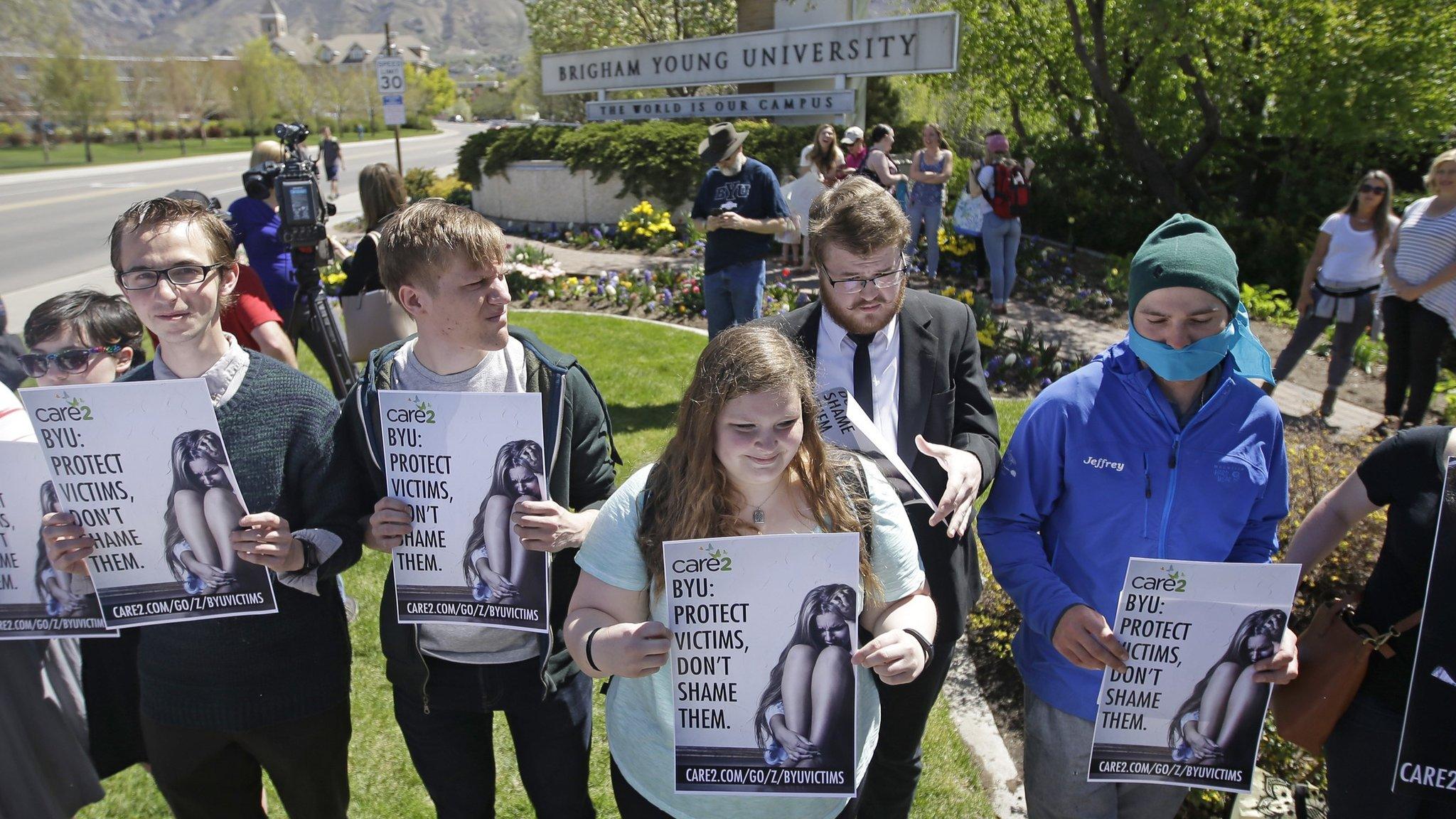Thordis Elva and Tom Stranger: Should a rapist be invited on stage?
- Published
Thordis Elva and Tom Stranger spoke on the BBC's Newsnight
An international project featuring a rapist discussing his crime on stage has drawn both condemnation and support. So should a perpetrator be given a platform to share his experience?
"There's a rapist in the building," the protesters shouted as they briefly blocked the entrance. "Get the rapist out."
Their banners and loudspeakers were an unusual sight outside a venue better known for world-class concert performances than controversy.
The anger at London's Royal Festival Hall at the Southbank Centre on Tuesday evening was over South of Forgiveness, an event that would see a woman inviting the man who raped her to discuss the impact of his actions.
The discussion between Thordis Elva, from Iceland, and Australian Tom Stranger had already been dropped from a women's festival at the weekend following pressure from campaigners.
Watch the full BBC Newsnight interview here, external
But it was rescheduled after organisers of the Women of the World (WOW) Festival said the debate was too important to silence.
"Rape is one of these critical issues and we need to shift the discourse around it, which too often focuses on rape survivors rather than rape perpetrators", Jude Kelly, artistic director of the Southbank Centre, said in a statement.
Diane Langford, one of the protesters waving placards on the banks of the River Thames, condemned the decision.
"I'm here because I feel a rapist is profiting from his rape," said the 75-year-old, herself a survivor of rape.
"I don't believe there can ever be impunity for a rapist."
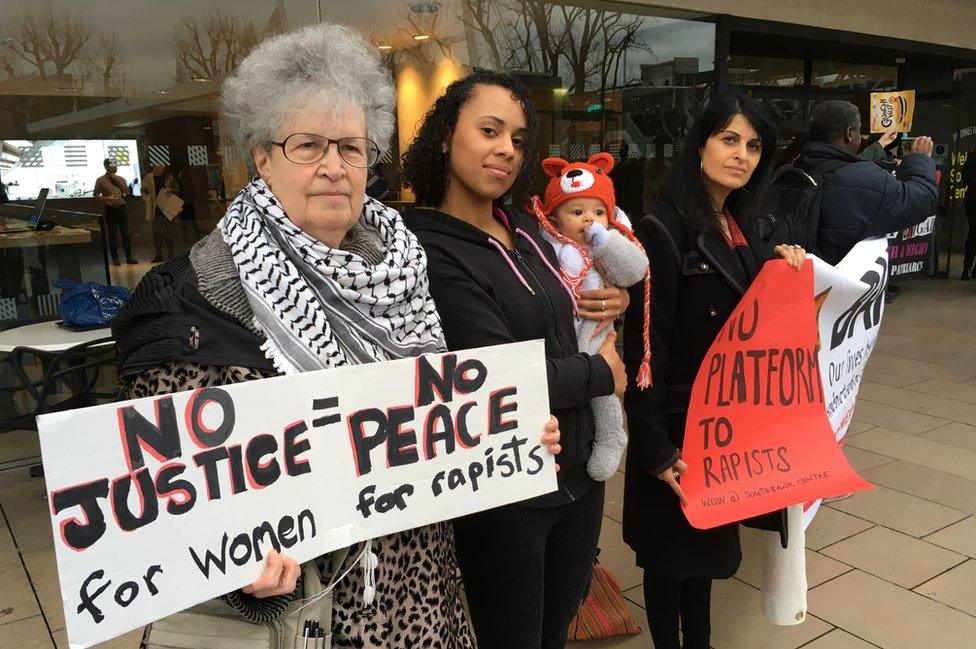
Diane Langford, left, was at the protest with her daughter, granddaughter and great-granddaughter
Thordis Elva was 16 when she was raped by her then 18-year-old boyfriend, Tom Stranger, after a Christmas party in her hometown in Iceland.
After years of turmoil she decided to get in touch with him. And to her surprise, he replied with a confession and an offer of "whatever I can do".
By then it was too late for her to press criminal charges. Instead, they wrote a book together about what happened.
A TED talk they filmed last October, external has been watched by more the 2.7 million people and the pair have since taken part in a handful of stage appearances.
Their London fixture prompted a petition, external by campaigners who warned it would be a "trigger" for sexual assault survivors - bringing back painful and dangerous memories - and could "encourage the normalisation of sexual violence instead of focusing on accountability and root causes of this violence".
They said it risked "suggesting that standing on a platform alongside one's rapist is a model approach to addressing sexual violence".
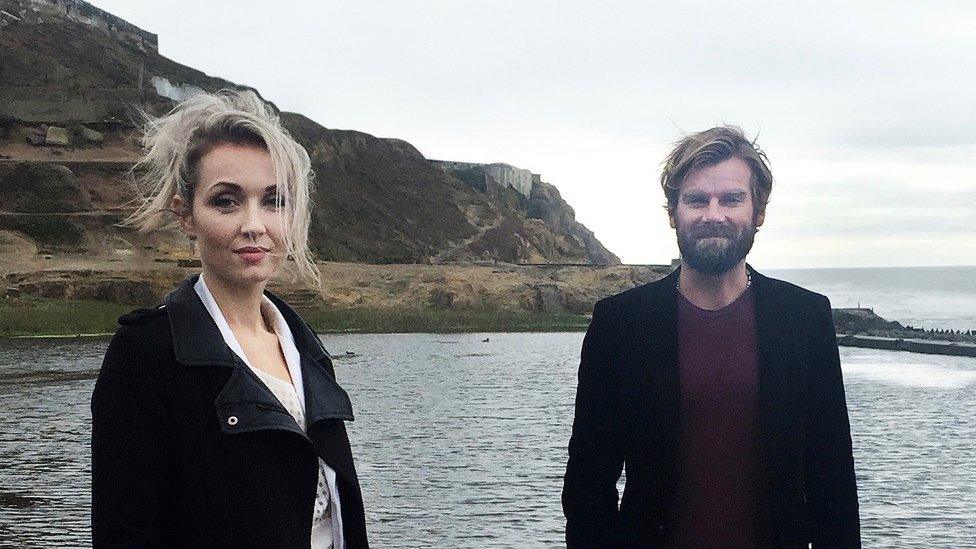
Thordis Elva made contact with Tom Stranger in 2005
The debate comes amid continued concern about the number of victims who report rape to police, both in the UK and around the world.
The BBC has previously covered cases - for example in Colombia and Myanmar - where women have been attacked and even raped again for speaking out against sexual assault.
Elva, who now lives in Sweden with her husband and son, insists she is not sharing a set of recommendations for others.
Instead, she wants to shift the focus of responsibility for sexual violence to the perpetrator rather than the victim, and bring about what she calls the "demonstrification" of attackers.
"Demonisation of perpetrators in the mainstream media got in the way of my recovery," she said.
"The fact that Tom wasn't a monster, but a person who made an awful decision, made it harder for me to see his crime for what it was."
When it was Stranger's turn to speak at the Royal Festival Hall on Tuesday, his words appeared very carefully chosen and he still seemed to have some difficulty getting them out.
"I'm not up here as some form of punishment... or searching for some kind of questionable redemption," he said.
"I'm not trying to benefit my profile or my bank balance. It would be disrespectful for me to do so."

More from BBC Women's Hour:

Organisers of the event said Stranger would not be paid for his appearance and he has vowed to donate any profits from the book to charity.
He is being held up as the first and only confessed rapist to speak out publicly and internationally about his crime - without being identified by a court. So there is no guide on how to deal with these sensitivities.
Wrong signal?
But the attempts to make Stranger's involvement more palatable have failed to pacify some activists and victims.
"Even if he's not getting paid, he will benefit from the cultural capital and the media buzz. He will continue to use his position of the vocal rapist to be protected," Liv Wynter, an artist, activist and survivor of rape, told the BBC.
In a comment piece , externalpublished before Tuesday's event, Wynter argued that rapists should not be applauded for purely admitting their crime, and worried that such a discussion could encourage other perpetrators to contact their victims.
No-one involved in the event encouraged this. But any possibility - however slight - that rapists might be somehow persuaded to contact their victims "would undoubtedly be concerning", says Katie Russell, a spokesperson for support group Rape Crisis.
"If there is any rapist reading about this who is considering doing so, we urge them not to; it's not your right or your decision," she says.
Rape Crisis as well as The Survivors Trust stress that, while they support Thordis Elva's process of recovery, her approach will not be right for everyone.
"We welcome the debate with caution as each experience is unique," says Fay Maxted of The Survivors Trust.
'Problematic individual'
Campaigners, meanwhile, have questioned how far Tom Stranger will go now to challenge other men who have perpetrated - or could perpetrate - sexual violence.
He told the audience in London he would be "deeply invested in listening to other men" and encouraged more men to take part the debate about sexual violence and responsibility around the world.
"I recognise I'm a problematic individual. But I think there's a hunger for this discussion and it is high time."
His involvement in the talk was broadly welcomed by those in the audience on Tuesday - perhaps unsurprisingly as they had devoted the time to listen.
"It was still her story", said Karla Williams, 34. "He didn't try to hijack anything or make it about himself."
"If you never hear from men, then how is anything ever going to change?" added her friend Simran Chawla, 41.
A handful of the men in the audience also shared their reactions in follow-up discussions after Elva and Stranger's talk. "I think what they are doing is extraordinary. I'm really pleased this is happening," one man said.
"Tom did something quite brave and courageous" in speaking up, said another.
But the small number currently engaging in the debate soon came in sharp focus. It emerged that a separate men-only discussion after Elva and Strange's event only attracted two participants.
"It seems men here weren't ready to have the conversation with themselves," one of them said.
- Published12 February 2017

- Published11 March 2017
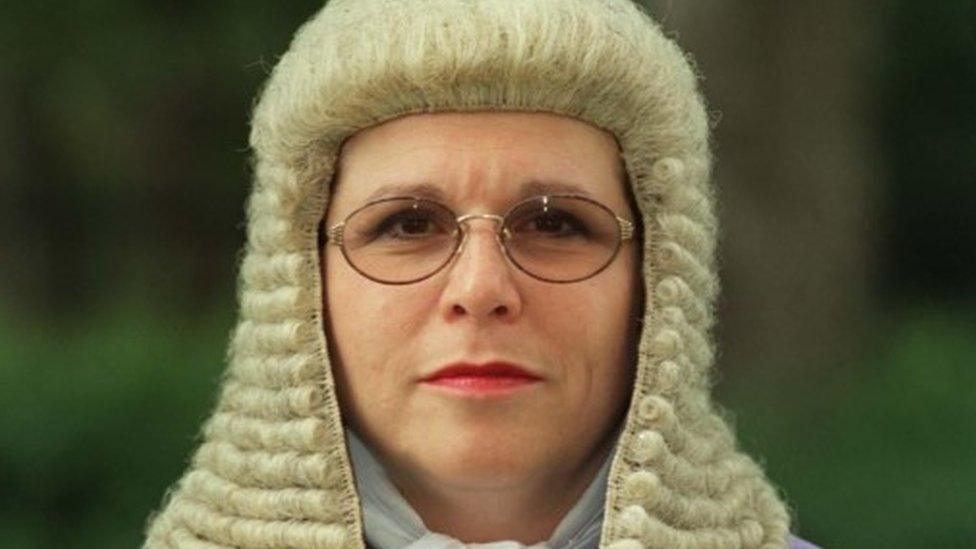
- Published4 November 2015

- Published11 March 2017
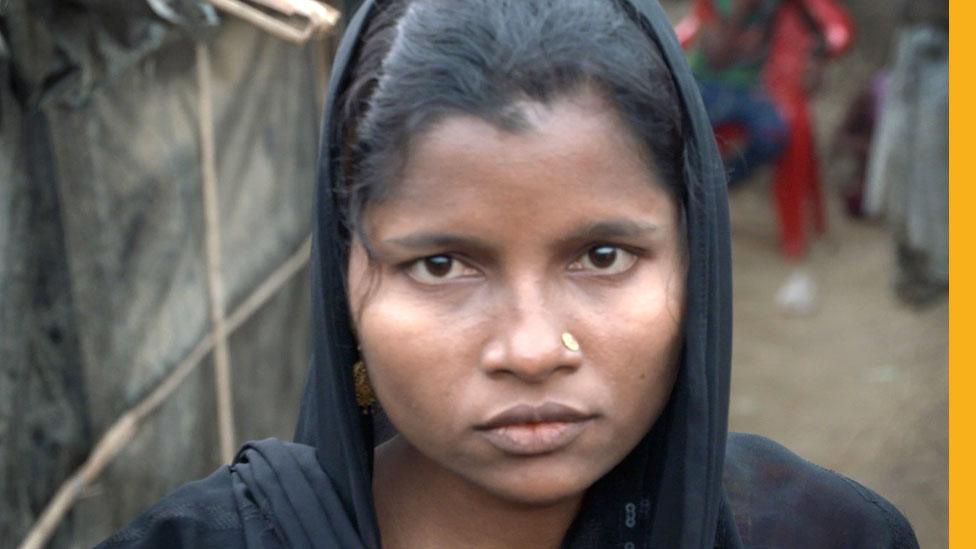
- Published1 May 2016
